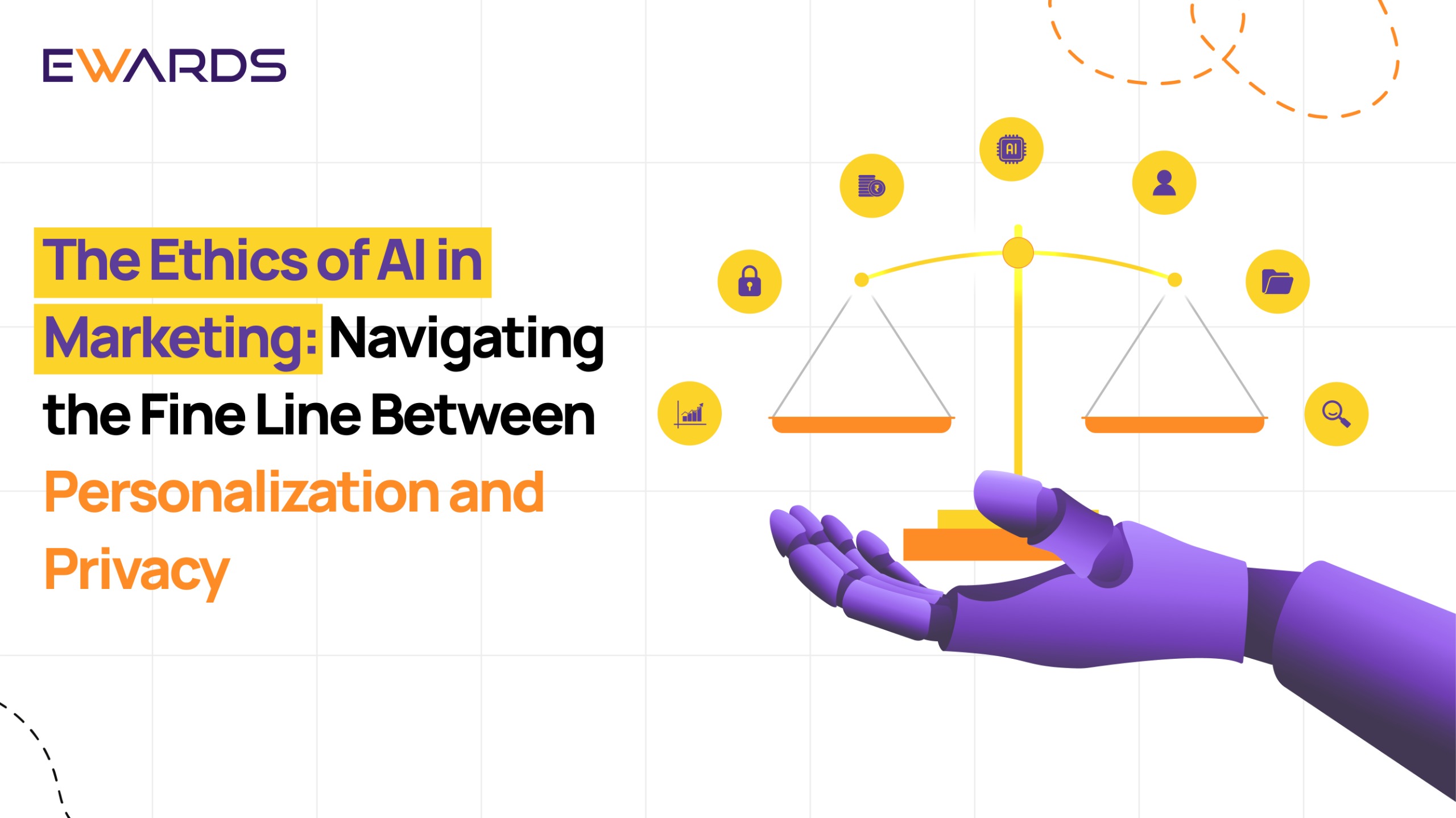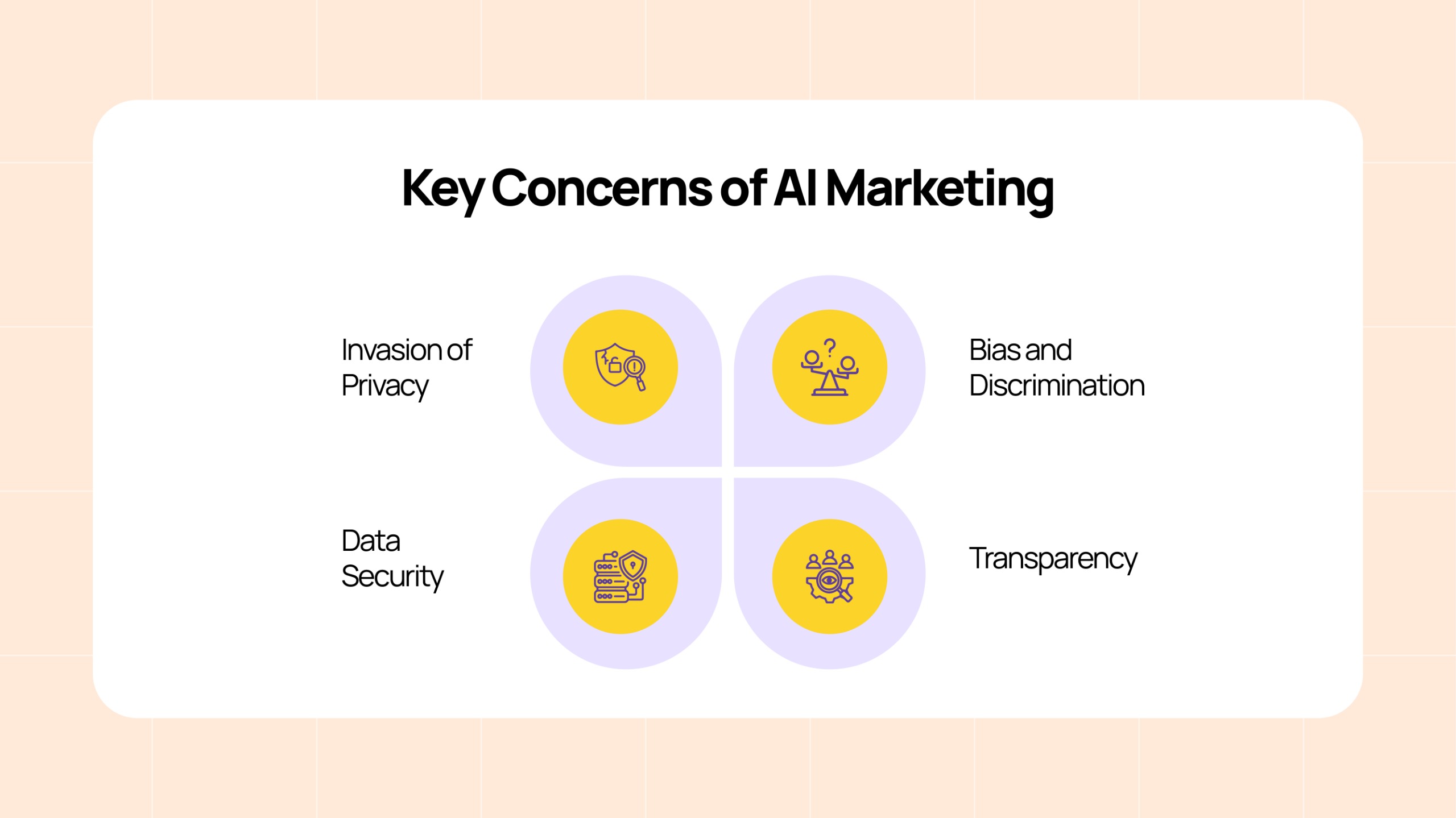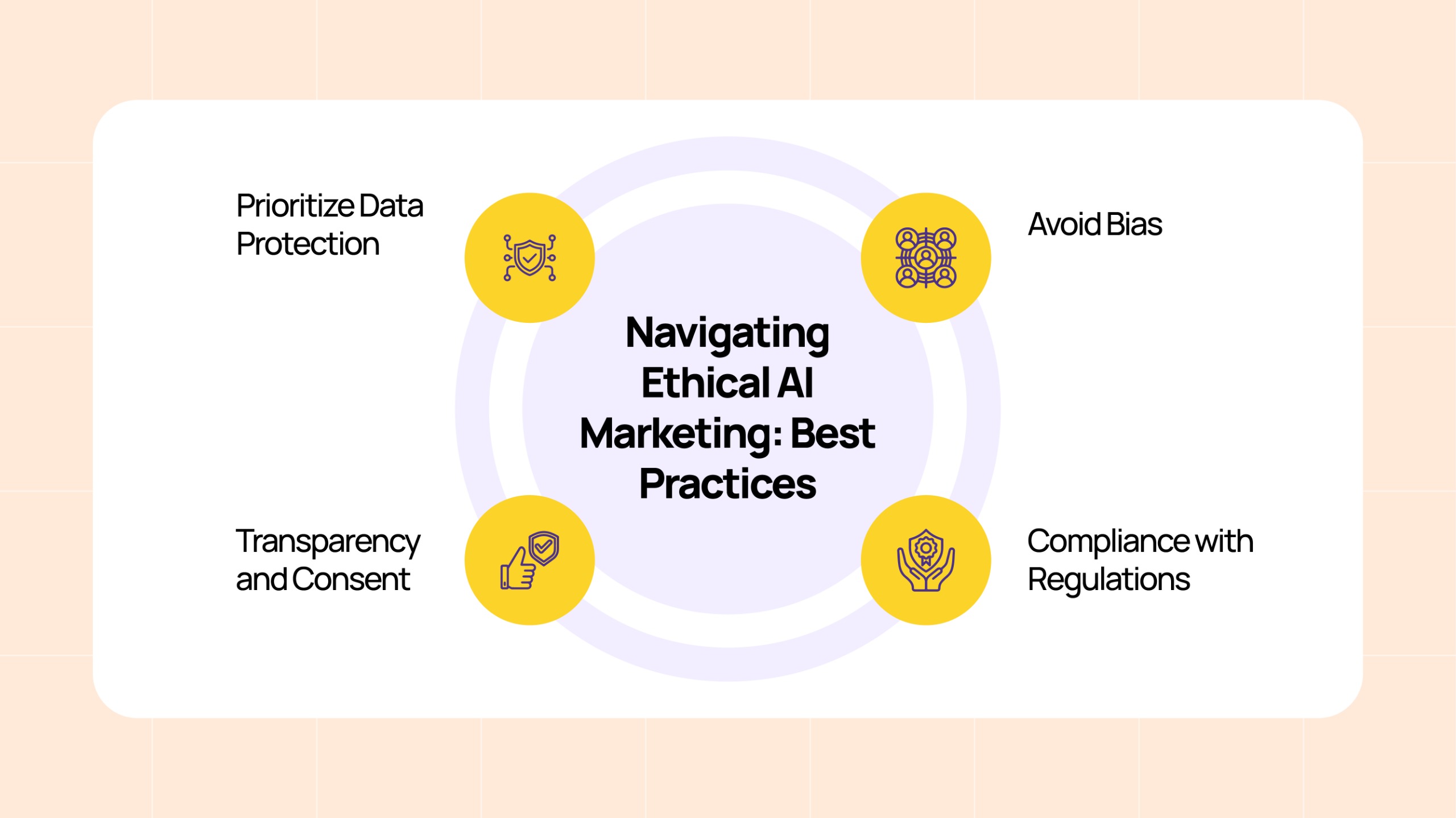
As artificial intelligence (AI) becomes an integral tool in marketing, companies are increasingly utilizing it to provide highly personalized experiences for their customers. This approach enables businesses to target consumers with tailored product recommendations, content, and advertisements that resonate with their preferences. While the advantages of AI marketing are clear, offering efficiency and engagement, ethical concerns surrounding data privacy and consumer rights cannot be ignored. This article examines how companies can balance the power of personalization through AI with the crucial need to respect privacy.
What Is AI Marketing?
AI marketing leverages artificial intelligence to optimize the delivery of marketing content. It works by analyzing large volumes of consumer data to predict behaviors and preferences. These insights enable businesses to personalize emails, advertisements, and website content, making their marketing efforts more effective and targeted. Essentially, AI marketing allows companies to refine their messaging based on data from consumer interactions, such as browsing history, purchase patterns, and social media activity.
The ultimate goal of AI marketing is to create an individualized experience for each customer. However, this reliance on data collection and analysis introduces significant concerns about consumer privacy. The more companies learn about their customers, the greater the risk of overstepping boundaries and infringing upon their privacy. Hence, the responsibility to ensure ethical practices in data usage becomes paramount.
The Ethical Dilemma: Personalization vs. Privacy
At the core of AI marketing lies the challenge of balancing personalization with privacy. Personalization refers to the tailoring of marketing efforts to an individual’s tastes and behaviors, enhancing the customer experience by delivering relevant content. On the other hand, privacy involves an individual’s right to control the use and dissemination of their personal data. These two concepts can often clash, as highly personalized marketing campaigns require extensive data collection, which may feel intrusive to consumers.
The dilemma arises when consumers are subjected to personalized marketing without fully understanding or consenting to the extent of data collection. While AI promises better-targeted content, it also raises concerns about the security of the data being used and the transparency of how it is handled.
The Role of AI in Personalization and Privacy
AI marketing uses data to analyze patterns in customer behavior, making marketing efforts more effective by predicting which products or services a customer is likely to engage with. However, this process is not without its challenges:
- Personalization: AI allows businesses to fine-tune their messaging, ensuring that consumers receive offers tailored to their preferences. This approach not only enhances the customer journey but also increases engagement by presenting consumers with content they are more likely to appreciate.
- Privacy: With vast amounts of consumer data at stake, privacy issues become a major concern. AI systems require access to detailed information, such as online activity, past purchases, and even demographic data. The more personal the data, the greater the risk of it being exposed or misused.
The key to responsible AI marketing is finding a middle ground that allows companies to deliver personalized experiences while ensuring the privacy and security of consumer data. For businesses, this means incorporating privacy-conscious strategies into their AI marketing efforts.
The Ethics of AI Marketing: Key Concerns

Several ethical concerns arise in the context of AI marketing, including:
- Invasion of Privacy: AI systems often collect extensive amounts of personal information to deliver tailored marketing. If this data is gathered without clear consent or understanding, it can feel invasive to customers. Furthermore, if companies misuse this data or fail to protect it adequately, it could lead to identity theft or financial fraud.
- Data Security: AI marketing relies heavily on large datasets, which include sensitive customer information. Ensuring that this data is securely stored and transmitted is crucial to prevent breaches that could compromise personal data. Without proper data protection measures in place, companies risk damaging their reputation and losing customer trust.
- Bias and Discrimination: AI algorithms are only as good as the data they are trained on. If these datasets are incomplete or biased, the resulting marketing efforts could discriminate against certain groups of people. For example, a company’s AI might deliver certain advertisements more frequently to one demographic while neglecting others, leading to unequal treatment of customers.
- Transparency: Consumers should have a clear understanding of how their data is being used and why. This transparency is critical to maintaining trust and ensuring ethical marketing practices. Companies must be open about the data they collect, how it will be used, and the mechanisms in place to protect it.
Navigating Ethical AI Marketing: Best Practices

To strike a balance between personalization and privacy, companies can adopt several best practices:
- Prioritize Data Protection: Implement robust data security protocols, including encryption, access controls, and regular security audits. Businesses should also provide customers with the ability to control their data and make informed decisions about its use.
- Transparency and Consent: Businesses should be transparent about their data collection practices, informing customers about what data is being collected and how it will be used. Consent should be explicit, and customers should have the ability to opt out of data collection or marketing campaigns at any time.
- Avoid Bias: Ensure that AI algorithms are designed to be fair and impartial by using diverse datasets and regularly auditing algorithms for potential bias. This can help prevent discriminatory practices and ensure that marketing efforts are inclusive.
- Compliance with Regulations: Companies must comply with existing regulations, such as the General Data Protection Regulation (GDPR) and the California Consumer Privacy Act (CCPA), to ensure that their data collection and processing practices are lawful and ethical. As AI marketing evolves, new regulations may be required to keep pace with technological advancements.
How eWards Upholds Data Privacy in AI
At eWards, we are committed to upholding the highest ethical standards in AI-driven marketing, ensuring that personalization never compromises privacy. Our platform integrates robust data security measures, including encryption and strict access controls, to safeguard consumer information. We prioritize transparency by providing clear privacy policies and enabling customers to control the data collected about them. Additionally, our AI-powered insights and marketing solutions are designed with fairness in mind, continuously monitored to avoid bias and discrimination. eWards is fully compliant with global privacy regulations like GDPR and CCPA, ensuring that our clients can offer personalized experiences while respecting user privacy and fostering trust. By balancing innovation with responsibility, eWards is dedicated to delivering customer-centric solutions that adhere to the highest ethical standards.
Book a Free Consultancy Call Today
Looking Ahead: The Future of AI Marketing
As AI evolves, its ethical implications in marketing grow more complex. Companies must proactively balance personalization with privacy by adopting ethical AI practices, embracing new regulations, and prioritizing customer trust. By doing so, businesses can deliver personalized experiences while respecting privacy, fostering stronger customer relationships, and promoting responsible marketing. Ultimately, prioritizing transparency, data security, and fairness ensures that AI-driven marketing benefits both consumers and businesses ethically.
Read more : InsightX: Your Marketing Intelligence CRM Partner